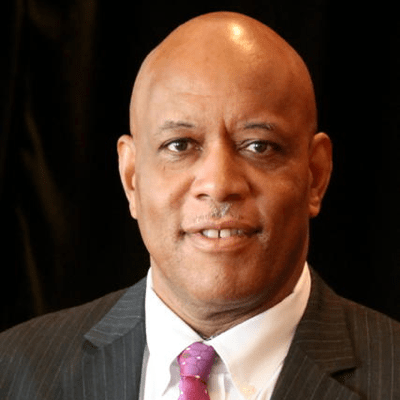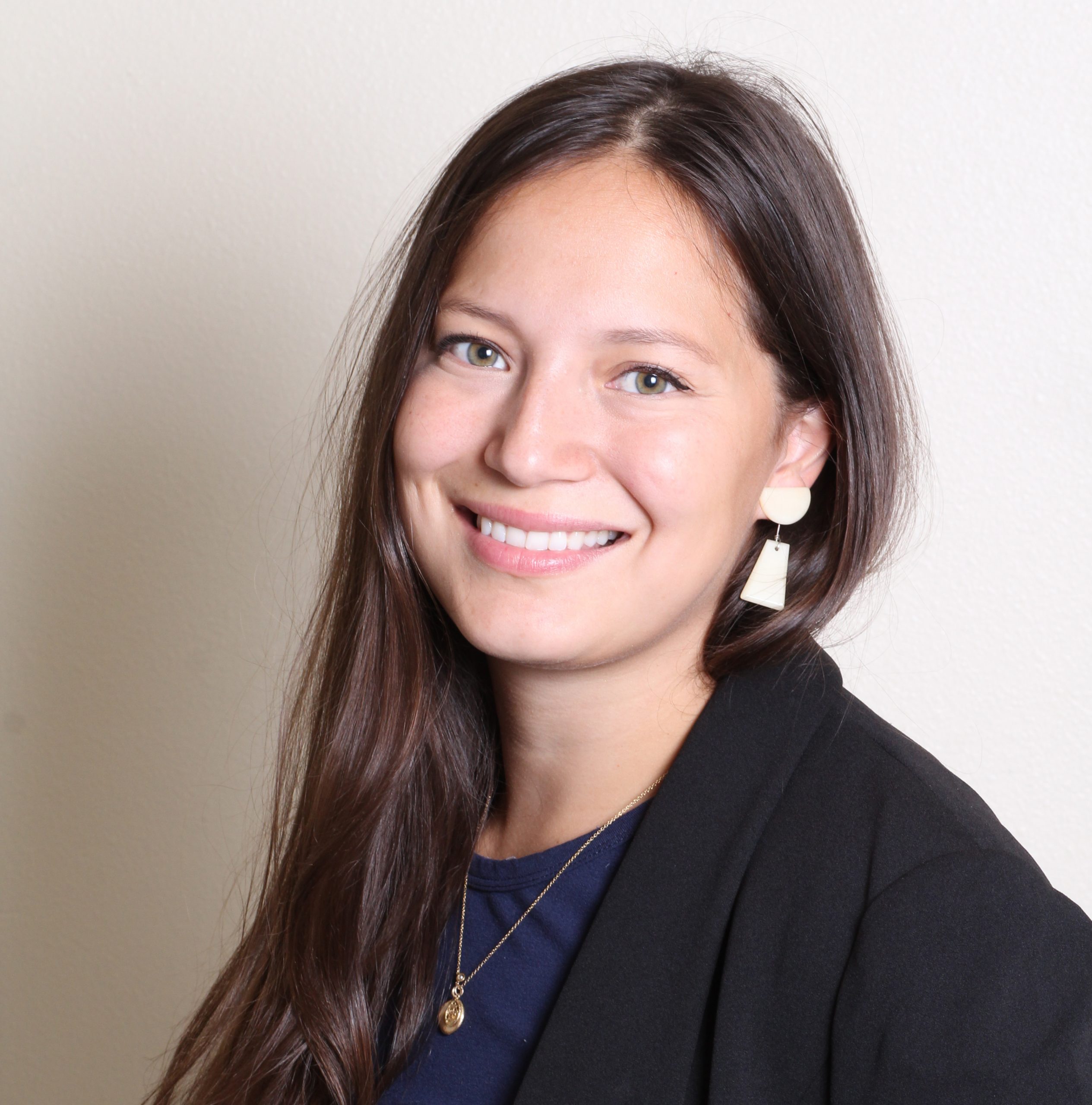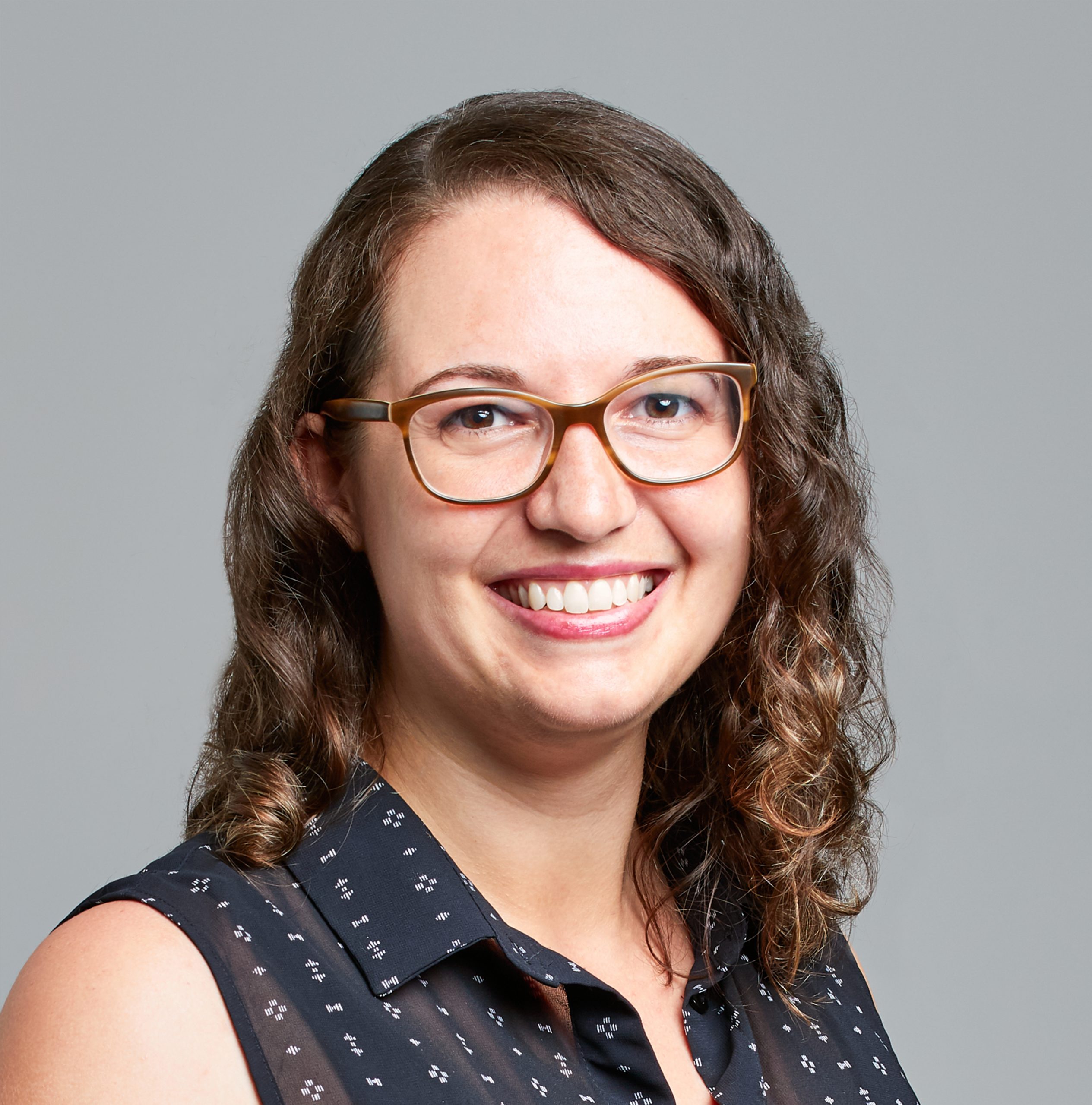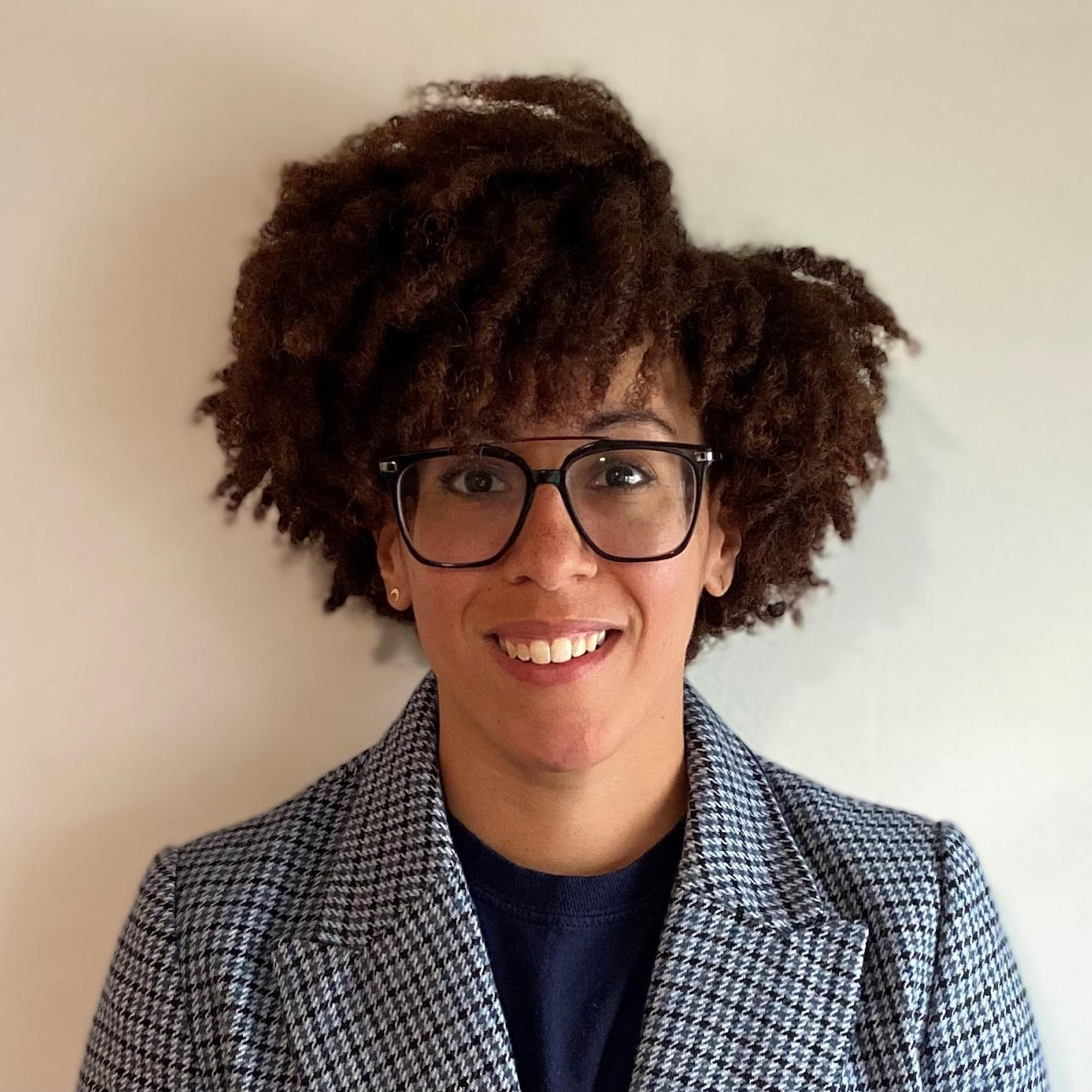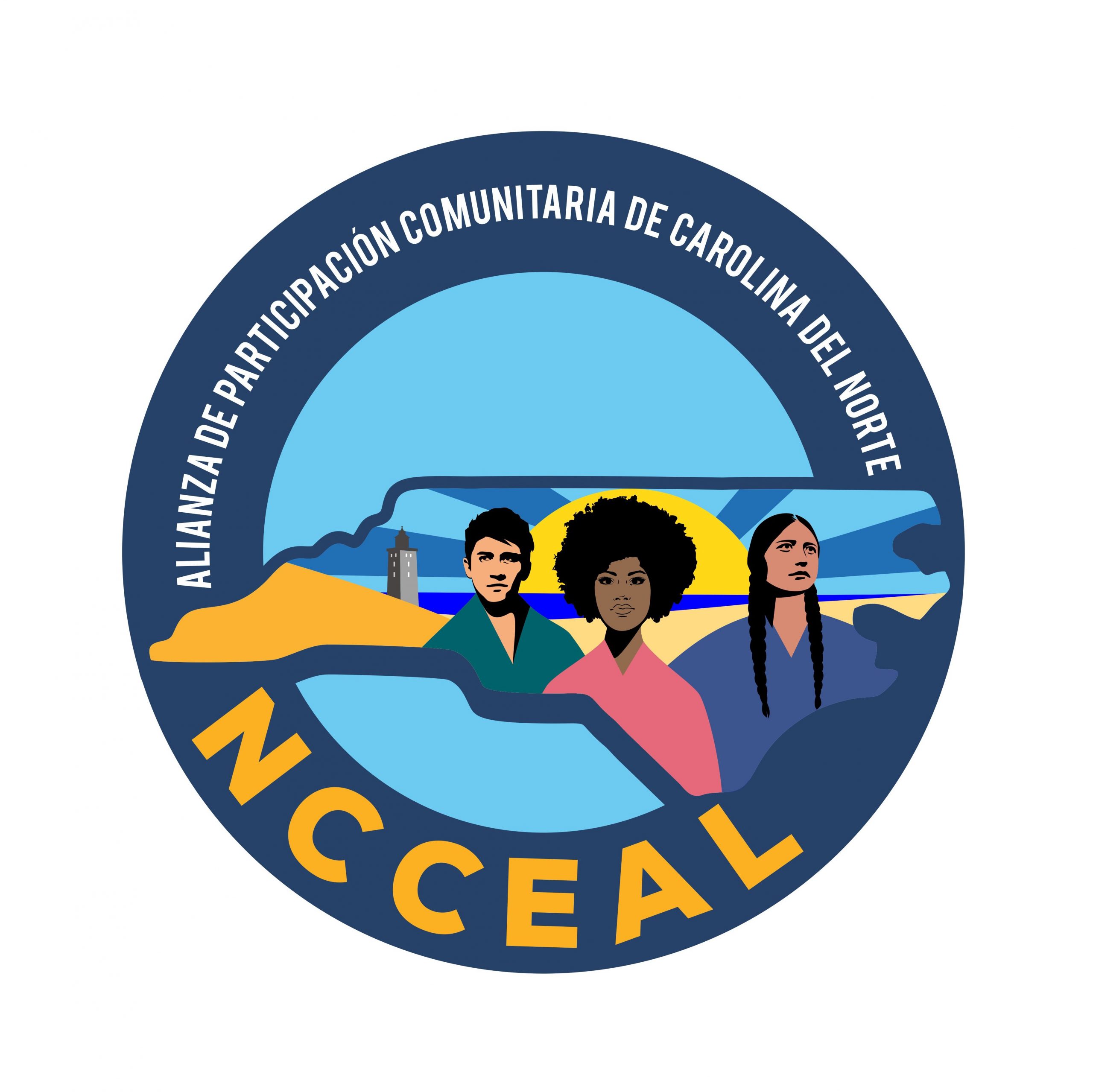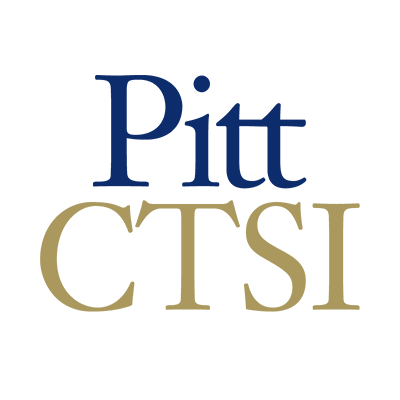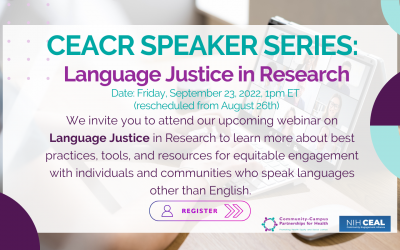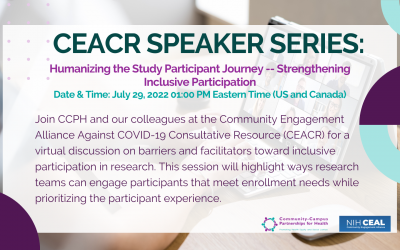Community Engagement Alliance Consultative Resource (CEACR)
Best Practices & Innovations in Inclusive
Participation in Research
CEACR
CCPH partners with the University of Pittsburgh Clinical and Translational Science Institute (CTSI) to support the NIH Community Engagement Alliance Consultative Resource (CEACR), pronounced “seeker.”
The goal of CEACR is to advance inclusive participation in research by delivering training, technical assistance, and expert guidance in community engagement principles and practices to NIH-funded research teams. CEACR will uplift assets, tools, and resources developed by the CEAL Alliance to promote principles of trustworthiness and research reciprocity.

Visit the CEACR website for information on how to request a consultation or join an expert panel.
See below for news, updates, and links to our 2022 Speaker Series.
The CCPH CEACR Team
Our Partners at Pitt CTSI
Elizabeth Miller,
MD, PhD, FSAHM
Co-Principal Investigator
Co-Director, Community PARTners (Community Engagement) Core, Clinical and Translational Science Institute, University of Pittsburgh School of Medicine
Mylynda B. Massart,
MD, PhD
Co-Principal Investigator
Medical Director, UPMC Primary Care
Precision Medicine Center
Institute for Precision Medicine
University of Pittsburgh
Nadia L. Jones
Senior Project Coordinator
Clinical and Translational Science Institute
University of Pittsburgh
CEACR News and Webinars
CEACR Speaker Series: Language Equity
CCPH and our partners at the Community Engagement Alliance Consultative Resource (CEACR) present the CEACR Speaker Series, a monthly...
CEACR Co-PI Dr. Mylynda Massart was recently featured in Pitt Med Magazine
CEACR Co-PI Dr. Mylynda Massart was recently featured in Pitt Med Magazine highlighting her work to promote research reciprocity. She describes how...
CEACR Speaker Series: Humanizing the Study Participant Journey — Strengthening Inclusive Participation
Join CCPH and our colleagues at the Community Engagement Alliance Against COVID-19 Consultative Resource (CEACR) for a virtual discussion...
The COVID-19 pandemic response has created new funding opportunities for community-engaged research and community-academic partnerships. When contracting with major institutions, community-based organizations often experience complex administrative processes, delays in funding, and other fiscal barriers. This webinar provides models and recommendations for new approaches to partner compensation rooted in transparency, reciprocity, power-sharing, and trustworthiness.

